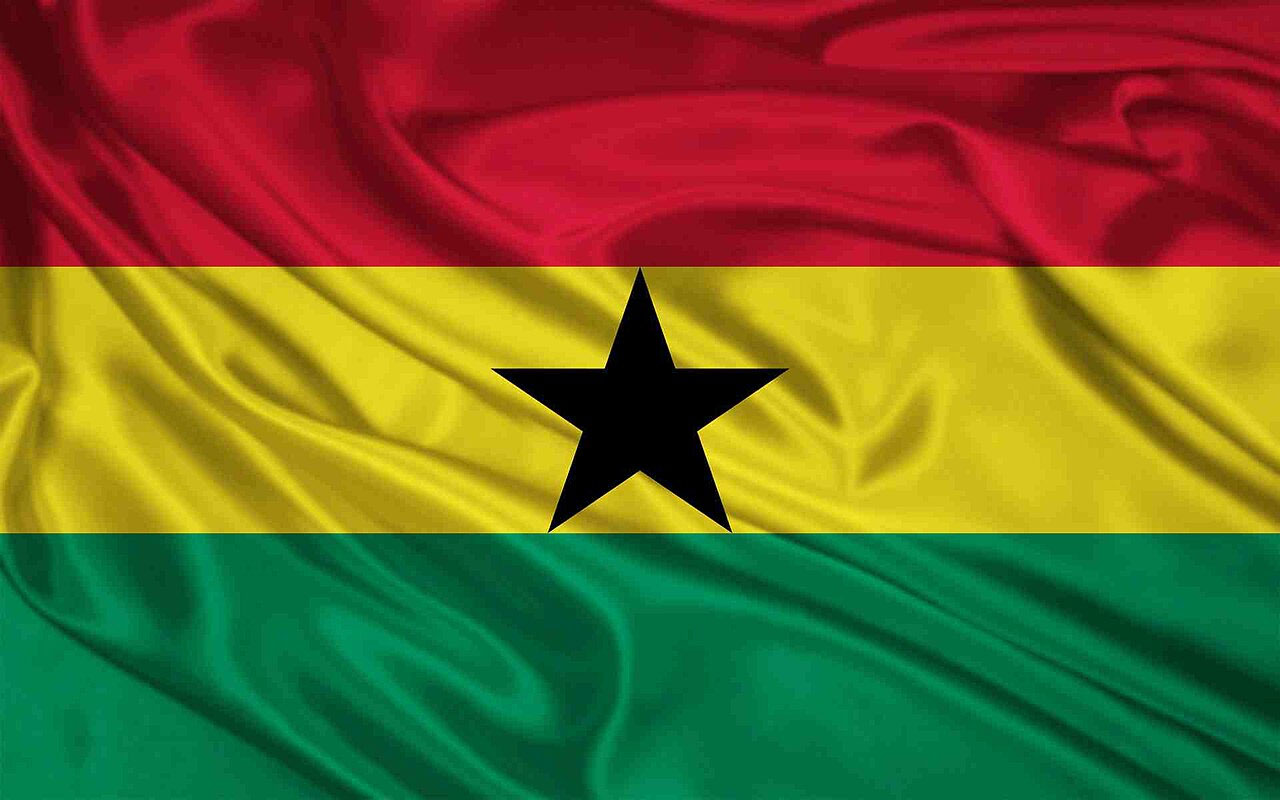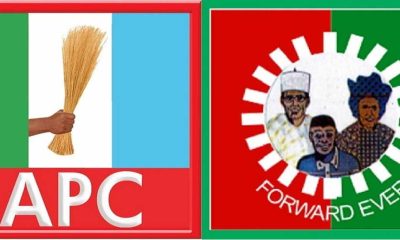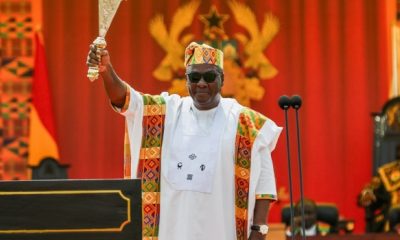Africa
Anti-gay, Lesbian bill: Ghana to lose $3.8billion world bank funding

Anti-gay, Lesbian bill: Ghana to lose $3.8billion world bank funding
The Ghanian government is posed to lose the total of $3.8 billion in World Bank funding over a recent Anti-LGBTQ bill passed by its parliament last week.
The finance ministry of Ghana has appealed to the president to withhold his signature from the contentious bill against LGBT rights, which was approved by parliament.
According to the BBC, the financial authorities in Ghana is suggesting that President Nana Akufo-Addo postpone the enactment of the bill until a Supreme Court decision verifies its compliance with the constitution.
Meanwhile, human rights organizations filed a legal challenge against the bill even before its approval by parliament, though it’s anticipated that the Supreme Court won’t hear the case for a while.
The US, UK and various human rights groups have already condemned the bill, which was backed by both of Ghana’s two main political parties.
On his part, Akufo-Addo is said to be engaging in consultations with important governmental departments and donors to gauge the effects of the Proper Human Sexual Rights and Ghanaian Family Values legislation.
According to the IMF, diversity and inclusion are values it embraces.
READ ALSO:
- Human rights violations: US imposes sanctions on Zimbabwe’s president, others
- FG to release of 58,500 metric tonnes of rice for market stabilisation
- Breaking: Exchange rate gains for third straight day on official market
“Our internal policies prohibit discrimination based on personal characteristics, including but not limited to gender, gender expression, or sexual orientation. Like institutions, diverse and inclusive economies flourish.
“We are watching recent developments in Ghana closely.
“We cannot comment on a bill that has not yet been signed into law and whose economic and financial implications we have yet to assess,” IMF told Bloomberg in response to the bill.
What you should know
Ghana heavily leans on the IMF for its financial well-being. In the aftermath of a debt default, it requested a $3 billion lifeline and is now involved in the process of rearranging its debt obligations.
On January 19, the IMF sanctioned the disbursement of an additional $600 million to Ghana as part of its three-year crisis intervention plan.
Meanwhile, officials warn that Ghana might forfeit around $850 million in aid this year with the recent bill, a loss expected to further strain the struggling economy, deplete foreign reserves, and impact the stability of the exchange rate.
Uganda adopted a similar policy the last year, imposing stricter penalties that include life imprisonment and even the death penalty. Following this, the nation was subjected to severe economic sanctions from diverse international groups.
The World Bank then stopped its financial support for Uganda in response to concerns over human rights, specifically regarding the country’s anti-homosexuality law.
The United States also removed Uganda from the Africa Growth and Opportunity Act (AGOA), a trade initiative started in 2000 aimed at enhancing economic ties between the U.S. and African nations.
Anti-gay, Lesbian bill: Ghana to lose $3.8billion world bank funding
Africa
Over 120 inmates escape prison in Chad shoot-out

Over 120 inmates escape prison in Chad shoot-out
No fewer than 120 inmates escaped a Chad prison during a shoot-out that left three people dead and wounded a state governor visiting the facility, officials told AFP.
The breakout occurred late Friday when an uprising happened in the high-security penitentiary five kilometres (three miles) from the town of Mongo, in the centre of Chad.
“There are around 100 who escaped, three dead and three wounded,” Hassan Souleymane Adam, secretary general of the Guera province in which Mongo is located, said.
READ ALSO:
- China warns countries against trade dealings with US
- Breaking: Pope Francis dies at 88 – Vatican
- Nigerian banks generated N14tn from loans – Report
- How Nigerian hotelier died during wife’s 60th birthday celebration
A local Mongo official, speaking to AFP on condition of anonymity, disclosed that prisoners broke into a manager’s office to steal guns.
“A shootout with guards ensued at the same time the governor arrived. He was wounded,” he said.
The Mongo official confirmed there were three killed and a total number of 132 prisoners escaped.
He disclosed that the prisoners revolted after complaining about a lack of food.
In a telephone chat with AFP, Chad’s Justice Minister Youssouf Tom stated that he was about to fly to the region and would be able to give “precise information once I am at Mongo in the coming hours.”
Over 120 inmates escape prison in Chad shoot-out
Africa
DR Congo boat fire kills 143 passengers

DR Congo boat fire kills 143 passengers
No fewer than 143 people died, and dozens more went missing after a boat carrying fuel caught fire and capsized in the Democratic Republic of Congo, officials said Friday.
Hundreds of passengers were jammed onto a wooden boat on the Congo River in northwest DRC on Tuesday when the wildfire broke out, according to Josephine-Pacifique Lokumu, head of a delegation of national MPs from the region.
The calamity struck near Mbandaka, the capital of Equateur Province, at the junction of the Ruki and the massive Congo River, the world’s deepest.
“A first group of 131 bodies was found on Wednesday, with a further 12 fished out on Thursday and Friday. Several of them are charred,” Lokumu told AFP.
According to Joseph Lokondo, a local civil society activist who helped bury the remains, the “provisional death toll is 145: some burnt, others drowned”.
According to Lokumu, the blaze was triggered by a fuel explosion sparked by an onboard cooking fire.
“A woman lit the embers for cooking. The fuel, which was not far away, exploded, killing many children and women,” she said.
READ ALSO:
- Speed Darlington alleges use of ‘Juju’ by Portable during celebrity boxing bout
- Speed Darlington alleges use of ‘Juju’ by Portable during celebrity boxing bout
- Davido eyes Nollywood, to invest in film projects
Videos circulating on social media showed flames leaping from a big boat stranded far from shore, smoke rising from the wreckage, and passengers on smaller vessels watching on.
The precise number of passengers on board the tragic vessel was unknown, but Lokumu estimated it to be in the “hundreds”.
Some people were rescued and admitted to the hospital, Lokondo added.
However, he said that “several families were still without news of their loved ones” on Friday.
The Democratic Republic of the Congo (DRC), a huge Central African nation spanning 2.3 million square kilometres (900,000 square miles), suffers from a shortage of passable roads, and planes serve just a few cities and villages.
As a result, people frequently travel on lakes, the Congo River (Africa’s second longest river after the Nile), and its winding tributaries, where shipwrecks are common and mortality tolls are high.
The persistent lack of passenger lists frequently hinders search activities.
In October 2023, at least 47 people perished when a boat travelling the Congo sank in Equateur.
According to local authorities, a boat sank on Lake Kivu in eastern DR Congo in October of last year, killing more than 20 persons.
Another shipwreck on Lake Kivu killed approximately 100 lives in 2019.
DR Congo boat fire kills 143 passengers
Africa
Niger Republic adopts Hausa as national language

Niger Republic adopts Hausa as national language
In a significant cultural shift, Niger’s military-led government has officially designated Hausa as the country’s national language, marking a break from the nation’s colonial legacy where French held prominence.
The announcement was made in a new national charter released on March 31, as published in a special edition of the government’s official journal.
According to the document, “The national language is Hausa,” and “the working languages are English and French.”
Hausa is already widely spoken across Niger, especially in the regions of Zinder, Maradi, and Tahoua. With an estimated population of 26 million, the majority of Nigeriens speak Hausa, while only about 13 percent—roughly three million people—are fluent in French.
Alongside Hausa, the charter also officially recognizes nine other indigenous languages, including Zarma-Songhay, Fula, Kanuri, Gourmanche, and Arabic, as “the spoken languages of Niger.”
READ ALSO:
- EU approves 1st retaliatory tariffs on U.S. imports
- Israeli strikes kill 20 in fresh attack on Gaza
- Nigeria spends over $21,000 to train one doctor — Health Minister
This language policy change follows a national consultative meeting held in February, during which the junta gained increased support. The assembly also approved a five-year extension for junta leader General Abdourahamane Tiani to remain in power.
Since the coup that ousted civilian president Mohamed Bazoum in July 2023, the military government has taken steps to sever ties with France. These include expelling French troops, cutting diplomatic relations, and renaming roads and public buildings previously named in French.
Niger’s move mirrors similar actions taken by fellow former French colonies Mali and Burkina Faso—both under military rule—as they too distance themselves from France and its institutions.
All three countries have also withdrawn from the Organisation Internationale de la Francophonie, a body that promotes the French language and cultural ties among member nations.
Niger Republic adopts Hausa as national language
-

 metro21 hours ago
metro21 hours agoOmokri : How Tinubu’s political mastery started with Abiola, says El-Rufai, Obi’s forces can’t stop him
-

 metro3 days ago
metro3 days agoI’m not in supremacy battle with Ooni, says new Alaafin
-

 Education15 hours ago
Education15 hours agoJAMB officials seize candidates’ hijab at Caleb varsity, Muslim students kick
-

 Entertainment2 days ago
Entertainment2 days agoP-Square: Jude Okoye freed after two months detention
-

 International14 hours ago
International14 hours agoUS releases 41 countries granted 90-day entry without visas (full list)
-

 Politics2 days ago
Politics2 days agoLabour Party collapses into APC in Plateau
-

 Business3 days ago
Business3 days agoNigeria’s gas production increases by 15.6% to 227,931.65 mscf
-

 metro2 days ago
metro2 days agoNiger Gov Bago makes U-turn on dreadlocks ban after backlash













